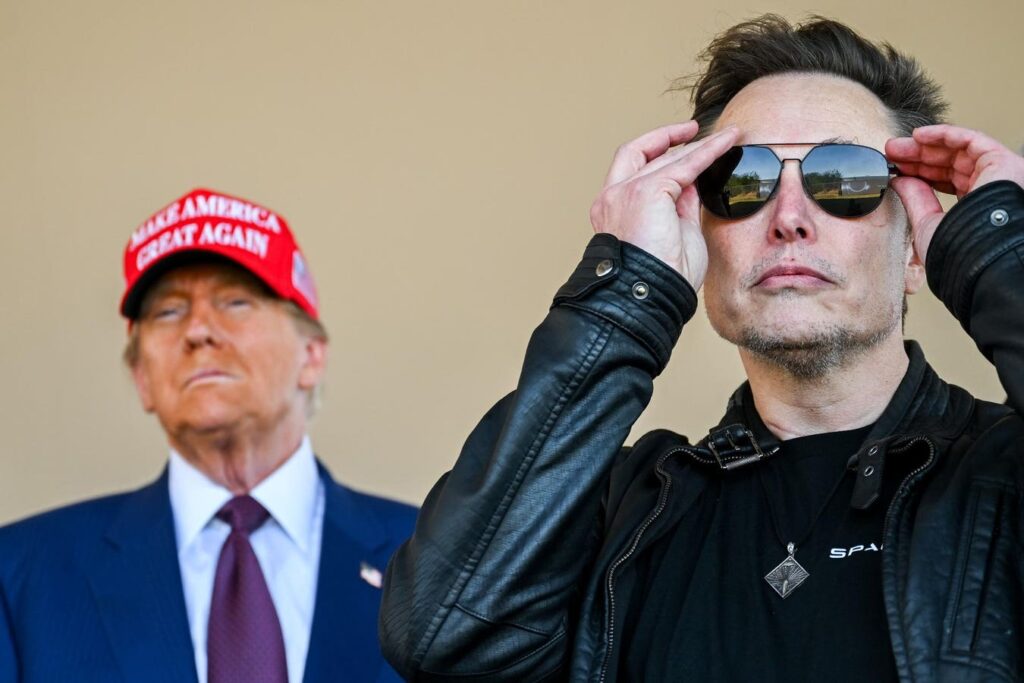BROWNSVILLE, TEXAS – NOVEMBER 19: U.S. President-elect Donald Trump and Elon Musk watch the launch … [+]
Getty ImagesIn sports, fans often debate the “GOAT” (Greatest of All Time)—whether it’s Tom Brady in football, Michael Jordan in basketball, or Tiger Woods versus Jack Nicklaus in golf. While preferences may vary, consensus on the top contenders typically emerges.
Entrepreneurship, however, is far more complex. There’s no scoreboard to measure greatness, and the metrics—wealth accumulation, societal impact, industry dominance, or longevity—are neither tangible nor universally agreed upon. Unlike sports, where championships and records provide clear benchmarks, evaluating entrepreneurial greatness requires a more nuanced approach. So, how do we decide who the greatest entrepreneur is?
Measuring Greatness: Wealth and GDP Share
One possible metric is wealth adjusted for time, inflation, or share of GDP. For instance, a billionaire in 1910 would wield exponentially greater economic power when adjusted for modern purchasing power or GDP. Using this lens, John D. Rockefeller, often regarded as the archetype of entrepreneurial success, amassed a fortune equivalent to 1.5% of U.S. GDP at his peak—an extraordinary figure in any era.
Historically, the wealthiest entrepreneurs (adjusted for GDP share) include:
- John D. Rockefeller (1839–1937)
- Industry: Oil (Standard Oil)
- Peak Wealth (Share of GDP): 1.5% ($1 billion in 1913)
- Modern Equivalent: ~$400 billion
- Legacy: Revolutionized the oil industry, establishing one of the first global monopolies.
2.Andrew Carnegie (1835–1919)
- Industry: Steel (Carnegie Steel)
- Peak Wealth (Share of GDP): 1.5% ($500M in 1901)
- Modern Equivalent: ~$310 billion
3.Cornelius Vanderbilt (1794–1877)
- Industry: Railroads and shipping
- Peak Wealth (Share of GDP): 1.15% ($105 million in 1870)
- Modern Equivalent: ~$250 billion
4.Henry Ford (1863–1947)
- Industry: Automobiles (Ford Motor Company)
- Peak Wealth (Share of GDP): 0.95% ($1.2 billion in 1928)
- Modern Equivalent: ~$250 billion
Elon Musk: The New Standard of Entrepreneurial Success
New #1 Elon Musk (1971–Present)
- Industry: Electric vehicles (Tesla), space exploration (SpaceX), and more
- Peak Wealth (Share of GDP): 1.6% ($437 billion in 2024)
- Legacy: A multi-industry innovator reshaping the future of automotive, energy, and space industries.
Until recently, Rockefeller’s 1.5% share of U.S. GDP was the benchmark for entrepreneurial wealth. Today, Elon Musk has surpassed this milestone. With an estimated net worth of $437 billion, representing 1.6% of U.S. GDP, Musk now holds the title of the wealthiest entrepreneur in modern history.
At just 53 years old, Musk’s career trajectory remains steep. For comparison, Rockefeller accumulated 90% of his wealth after turning 53, suggesting Musk’s entrepreneurial ascent is far from over.
SpaceX: Musk’s Crown Jewel
While Tesla often garners headlines, at a $1.5 Trillion valuation, SpaceX is arguably Musk’s most transformative venture. Valued at approximately $350 Billion, with Musk owning 40%, SpaceX contributes significantly to his wealth and is on a steep growth trajectory. More importantly, SpaceX has revolutionized space exploration by achieving what many deemed impossible: delivering cutting-edge innovation at a fraction of NASA’s costs.
From reusable rockets to global internet through Starlink, SpaceX’s accomplishments extend far beyond Musk’s financial success. The company’s unparalleled growth potential underscores Musk’s vision to reshape humanity’s relationship with space.
A Multidimensional Entrepreneur
Unlike historical titans such as Rockefeller (oil), Carnegie (steel), or Ford (automobiles), Musk’s influence spans multiple industries:
- FinTech: Co-founder of PayPal, transforming digital payments.
- Automotive: Tesla, leading the global transition to electric vehicles.
- Space: SpaceX, revolutionizing space travel and exploration.
- AI: X.ai, advancing artificial intelligence research.
- Infrastructure: The Boring Company, innovating underground transportation.
Musk’s ability to dominate diverse industries sets him apart from his predecessors. Few entrepreneurs in history have demonstrated such widespread influence across distinct sectors.
The First Trillionaire?
Musk’s alignment with government priorities, innovation in expanding industries, and relentless ambition suggest he could become the world’s first trillionaire. Given his current wealth, even an average market return (e.g. 10% annually), would enable his wealth to grow by more than 10x to 20x in the next 30 to 40 years (readers note: $1 invested @10% =$45.26 in 40 years). This suggests that his wealth could someday surpass $5 to $10 trillion in the coming decades. His visionary leadership, particularly with SpaceX, positions Musk not only as a business titan but also as a pivotal figure in humanity’s technological advancement.
The Verdict: The Greatest Entrepreneur of All Time
While historical icons like Rockefeller and Carnegie established monumental legacies, Elon Musk’s achievements transcend traditional definitions of entrepreneurship. His ability to innovate across industries, his record-breaking wealth, and his profound impact on the future of humanity make a compelling case for his unparalleled greatness.
At just 53, Musk’s story is still unfolding. Yet, with his track record of relentless innovation and industry dominance, Musk has firmly established himself as the greatest entrepreneur of all time—and his journey is far from over.
Read the full article here


